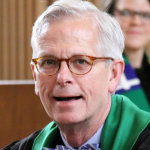A chorus of voices these days advise Americans against making New Year’s resolutions. It seems fewer and fewer experts favor them because so few people actually keep them through the end of the year.
Fast Company, a business media company that focuses on technology and leadership, went a step further by urging the adoption of “anti-resolution” lists to lose negative habits like making excuses, procrastinating and overcommitting.
Some ministers advise that new goals, especially spiritual ones, be undertaken at a calm, steady pace and in the context of faith.
But research consistently shows that despite the warnings and even repeated experience that resolutions don’t work, a lot of people will be knuckling down in hopes of achieving physical, professional and religious improvement.
Statistic Brain reported that the top resolutions range from losing weight and healthier eating, smoking cessation and exercise to self-improvement, more quality time with family and doing more to help others.
Just over 40 percent of Americans make resolutions, Statistic Brain said, while only around 9 percent have any success with them.
Rather than fall into that cycle, Baptist minister Kenneth Meyers said he identifies key areas of his life and ministry that need constant reflection.
“Being a workaholic, New Year’s resolutions are not for me,” said Meyers, faith formation specialist for the Alliance of Baptists. “Rather, I focus on assessment.”
That means examining his exercise routine to determine if it remains helpful, and whether or not his interior life is reflective, his marriage is loving and his work fulfilling, Meyers told Baptist News Global.
“Piety aside, these questions guide me for the ‘development of the soul,’” he said, borrowing a quotation from Alexander Solzhenitsyn.
The mistake a lot of Christians make is not relying on their faith to help them make the improvements they seek, Ed Stetzer said in a New Year’s Day article for Christianity Today.
The failures that typically accompany areas like food and exercise also plague efforts at improved Bible study, prayer and worship attendance.
“If we as believers hope to make long-lasting, life-giving changes, we need to find ways to keep our word and stick with our goals long past January 2nd,” Stetzer said.
The key is to rely on faith to accomplish important changes, he said.
This New Year’s, Stetzer added, “if we find ourselves thinking that our own strength is sufficient to carry us to places of greater faith in God or dependency on him, we’re sorely confused.”



